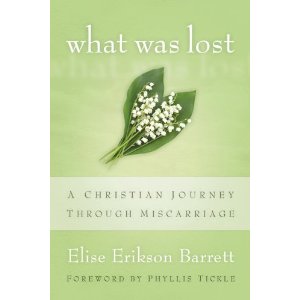I’ve been listening to Harry Potter and the Deathly Hallows again in preparation for the movie next month--which releases in 45 days, but who’s counting? In listening I have come once more to realize why it is one of my favorite books. As I mentioned here on the blog this summer, it speaks eloquently to Christian themes of death, sacrifice, and resurrection. J.K Rowling talked about this a bit in last week’s interview with Oprah Winfrey.
In a new book, Greg Garrett (The Gospel According to Hollywood; Holy Superheroes; and a number of other books on religion and popular culture) explores the Harry Potter series as religious literature. Say amen, somebody! Here’s a Q&A about One Fine Potion, Greg’s new exploration of the “literary magic” of Harry Potter.
Flunking Sainthood: First off, congratulations on a beautiful analysis of Harry Potter. I’m sure some people will wonder, “Why now, when the series is complete, will people want to buy a book on this topic?” But I think your book proves that the Harry Potter stories have become classics in both children’s and Christian literature, and that people will be analyzing them closely for decades to come.
Garrett: I’m so glad the book worked for you; obviously I’m hoping that some people will want to read more about Harry Potter. I point out early on in the book that Harry Potter has become the most successful “fictional” story in history, and the popularity of the films and now the brand new theme park in Orlando are convincing evidence that the narrative still interests millions. I waited to write my book until I had a chance to read and re-read J. K. Rowling’s books, so that I could do a faithful analysis of her story to understand what it is that people are carrying away from it, whether consciously or subconsciously. What I did in One Fine Potion was name those things so that people can claim the lessons and encouragement Rowling provides in these pages and carry them back into their lives.
FS: You argue that reading books like Harry Potter is “essential for our moral development.” I agree! But can you explain why?
Garrett: I like Stanley Hauerwas’s argument that we learn best when we understand life in the form of an adventure story, since we best absorb the lessons of the moral life through narratives in which characters strive against an uncertain future. As they make choices with consequences for themselves and for the world around them, we can see and learn, if we choose, although we don’t necessarily even have to pay conscious attention. When the adventure story is also entertaining, as C. S. Lewis once wrote, powerful moral themes have a chance to sneak past our internal censors and into our hearts without our even knowing it. So when I root for Harry Potter to trust the power of love, to sacrifice for his friends, to allow himself to be formed into a hero by his community, I’m also unintentionally drinking that pumpkin juice myself. But if we then have a conversation about what is happening in the books and films, it becomes something I can both notice and consciously try to emulate.
FS: Your book is heavily influenced by C.S. Lewis, whom you quote frequently. What would Lewis have thought of J.K. Rowling’s series?
Garrett: The central conceit of my book is that we return to stories we love over and over again not because we still wonder what happens (unless we have a rare brain dysfunction), but because these stories have a powerful effect on us in some other way. Lewis articulated that idea as a beautiful metaphor: a story’s plot is merely the net in which the important themes are caught. Judging by Lewis’s own fantastic tales and the things caught therein, I think he would have resonated deeply with Rowling’s universe in which there is a deep moral order undergirded by love. I don’t know that his approval would have been unqualified, since I imagine the literary critic part of Lewis might have found occasional fault with Rowling as a stylist, but I have no doubt that the Christian apologist part of Lewis would have celebrated the fact that there is no more powerful contemporary retelling of the gospel narrative than Rowling’s 4100 pages.
FS: You talk at length about compassion in Rowling’s characters. What moments in the series were most powerful for you as a reader, when characters chose to show empathy even at personal cost? (Just as a personal disclaimer, I was reading your book in Starbucks and it made me tear up several times as I remembered scenes of great moral courage. I had to use my recycled-paper napkin as a Kleenex.)
Garrett: Since, like Harry, I am Dumbledore’s man through and through, I was moved over and over again by the sacrifices the Hogwarts headmaster was willing to make on behalf of those he loved. I had a lump in my throat in The Order of the Phoenix when Dumbledore calmly threw away his whole identity as headmaster to protect Harry and the students by claiming responsibility for organizing Dumbledore’s Army. Another of the most affecting moments in the saga is when Dumbledore willingly chose to die at Severus Snape’s hands in The Half-Blood Prince rather than have Draco Malfoy’s soul soiled by murder. In fact, since Dumbledore’s whole adult life was about education and formation, it occurs to me that these acts offer a way, perhaps, of teaching Harry about the power of loving and necessary sacrifice, so that when it comes time for Harry to make his ultimate choice about his destiny, he has Dumbledore’s example (and the examples of his mother and father, for that matter) from which to learn.
FS: Near the end of the book you talk about organized religion and write, “Like Rowling, George MacDonald, C.S. Lewis, and J.R.R. Tolkien all wrote fantasy epics in which the church seems absent as an institution, yet in each of their greatest stories, the Christian story lies submerged just below the surface and sometimes breaking though into the light.” Where do you see that theme breaking through?
Garrett: The most obvious place it actually breaks through is in The Deathly Hallows, when Harry discovers Bible verses inscribed on the tombstones of Dumbledore’s sister Ariana and Harry’s murdered parents. Rowling told the media that these two verses represented the thematic core of the entire series, and the British newspaper The Telegraph ran a headline about how Rowling’s Christianity had shaped the novels. But she’d been telling interviewers for years that although she was a person of faith, she didn’t want to say too much about her beliefs, for fear that people would figure out what direction her story was moving. Now that the series is complete, we know that the shape of the finished Potter narrative is the shape of the Christian story: A prophesied savior willingly lays down his life in order to defeat the power of death, fear, and hopelessness, and usher in a beautiful new world. The qualities of love, community, sacrifice, compassion, and courage that Rowling celebrates in the novels seem to me to be the qualities Christians most need to live an authentic and faithful life, so even though no one in the books preaches, the books preach.
FS: OK, a lighter question. What are you hoping for from the last two Potter films (Book 7, in two installments)?
Garrett: I’m really hoping the movie shows the scene in Deathly Hallows where Kreacher the house elf smacks Mundungus Fletcher with a frying pan. Although I like to think I am a Christian pacifist, I can tell you that my son Chandler and I laugh ourselves silly every time we listen to that section on the audio book.

